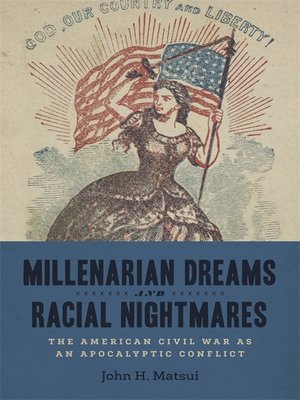Millenarian Dreams and Racial Nightmares
ebook ∣ The American Civil War as an Apocalyptic Conflict · Conflicting Worlds: New Dimensions of the American Civil War
By John H. Matsui

Sign up to save your library
With an OverDrive account, you can save your favorite libraries for at-a-glance information about availability. Find out more about OverDrive accounts.
Find this title in Libby, the library reading app by OverDrive.



Search for a digital library with this title
Title found at these libraries:
| Library Name | Distance |
|---|---|
| Loading... |
In Millenarian Dreams and Racial Nightmares, John H. Matsui argues that the political ideology and racial views of American Protestants during the Civil War mirrored their religious optimism or pessimism regarding human nature, perfectibility, and the millennium. While previous historians have commented on the role of antebellum eschatology in political alignment, none have delved deeply into how religious views complicate the standard narrative of the North versus the South.
Moving beyond the traditional optimism/pessimism dichotomy, Matsui divides American Protestants of the Civil War era into "premillenarian" and "postmillenarian" camps. Both postmillenarian and premillenarian Christians held that the return of Christ would inaugurate the arrival of heaven on earth, but they disagreed over its timing. This disagreement was key to their disparate political stances. Postmillenarians argued that God expected good Christians to actively perfect the world via moral reform—of self and society—and free-labor ideology, whereas premillenarians defended hierarchy or racial mastery (or both). Northern Democrats were generally comfortable with antebellum racial norms and were cynical regarding human nature; they therefore opposed Republicans' utopian plans to reform the South. Southern Democrats, who held premillenarian views like their northern counterparts, pressed for or at least acquiesced in the secession of slaveholding states to preserve white supremacy. Most crucially, enslaved African American Protestants sought freedom, a postmillenarian societal change requiring nothing less than a major revolution and the reconstruction of southern society.
Millenarian Dreams and Racial Nightmares adds a new dimension to our understanding of the Civil War as it reveals the wartime marriage of political and racial ideology to religious speculation. As Matsui argues, the postmillenarian ideology came to dominate the northern states during the war years and the nation as a whole following the Union victory in 1865.







